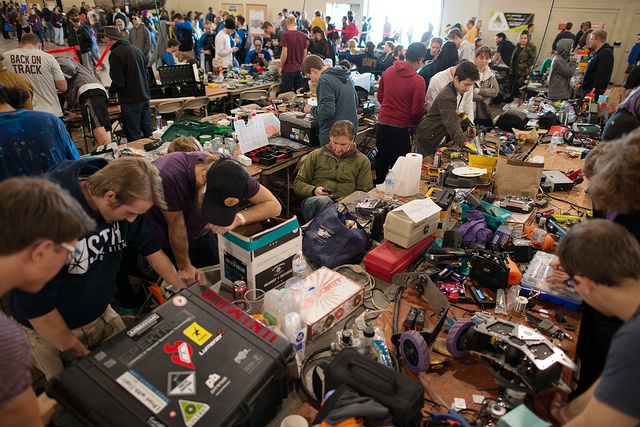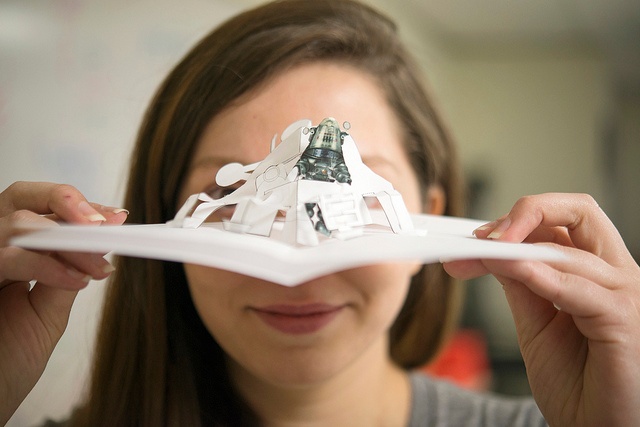The “maker” movement in education has been a widespread topic, and as many settings move toward adopting maker programming, the question that arises for many people is: “Why is maker education important?” As education strategies shift to match the demands of a rapidly changing employment environment, providing context for problems is a key concept we can give learners.
No problem exists in a vacuum, and it is important to examine the ecosystem surrounding the problem or challenge that maker education is helping students achieve. In learning settings, simply identifying the problem can be a great starting place. In addition to identification of the problem, there is usually a set of variables that impact the problem, how that problem behaves and how adaptive a solution needs to be — all of which can impact the ecosystem in which the problem lives. Only by working their way through a problem will students truly understand the role each of these variables plays on the problem overall.
The Importance of Iteration
As such, it’s important to give the learner the opportunity to find multiple solutions, to decide which one to go with and to find out what needs to change about the choices made to solve the problem. Rarely in a research or engineering setting is the first solution the best solution. Testing and refining a design also sharpens a learner’s ability to calibrate a solution and develop test and measurement metrics that define the proposed solution.
I often find that I learn more from the process of testing a solution than I do from defining an end solution. I seem to be infinitely fascinated with the test and characterization of my work. Maker education and iterative solutions provide a chance to explore these phased levels of problem solving in a way that standards-based testing seems not to have the time frame to address.

Computational Thinking
The exploration of materials, processes for working with materials, and thinking as a person who has to produce a product or solution that depends on materials and processes is a mind-set built for the maker ethos. It's also the development cycle that happens in employment settings over and over. Modeling this early and often can make learners more supple and well-versed in solving problems and can also illuminate the “where will I ever use this” aspect of day-to-day education.
In addition to the materials and processes encountered in the maker tracks, the subject of computational thinking is becoming a common skill set and standard for learning outcomes.
The way I describe computational thinking is the ability to frame a problem or process so that a computer can work on aspects of the problem, such as motion control, data logging, or interactivity for command and control of digital systems.
Teaching a logic-based approach to mathematical and logical interaction with a problem is key to developing the modern learners we strive to produce in our respective settings.
The STEM Self-Identity

“The STEM self-identity” is a phrase I heard used at a keynote that struck deep inside of me. As the speaker described giving young people exploratory environments and opportunities to find within themselves a “STEM self-identity,” I was reminded of experiences early on that motivated me to keep trying and pushing my learning further. Like me, I'm sure many others remember when they first said to themselves: “I am a scientist,” “I can solve this problem,” or “This is hard, but I won't give up.” This kind of experience seem to naturally arise from making in a high proportion.
By allowing learners to encounter problems outside high-stakes testing and in flat peer environments where the answer or product isn’t the metric but the experience itself is, I believe we can provide effective experiences that encourage meaningful self-discovery. That is the true value of maker education.
This is my opinion, and I'm convinced that there are other voices out there engaged in maker education that have wonderful insight to share. Feel free to add your thoughts to the comments.


Maker Education, getting started